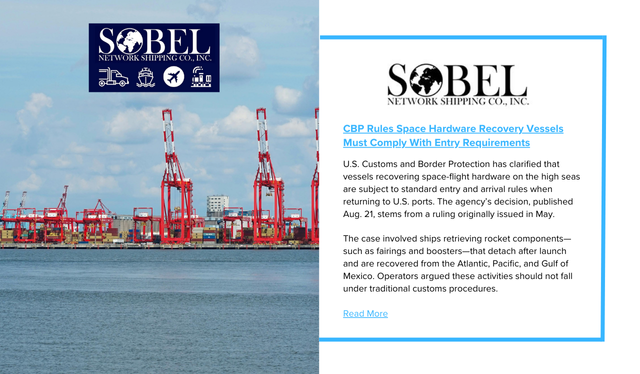U.S. Customs and Border Protection has clarified that vessels recovering space-flight hardware on the high seas are subject to standard entry and arrival rules when returning to U.S. ports. The agency’s decision, published Aug. 21, stems from a ruling originally issued in May.
The case involved ships retrieving rocket components—such as fairings and boosters—that detach after launch and are recovered from the Atlantic, Pacific, and Gulf of Mexico. Operators argued these activities should not fall under traditional customs procedures.
CBP, however, determined the equipment qualifies as “merchandise” under U.S. law. The agency emphasized that vessel entry rules apply when goods are physically received aboard a ship outside the U.S. territorial sea, regardless of ownership. For customs purposes, the territorial sea extends three nautical miles from the U.S. coast.
According to the ruling, droneships and support vessels that transport recovered components must report arrivals and make vessel entry upon returning to port. Tow vessels that only transport the recovery platforms, but do not themselves take possession of hardware, are exempt.
The decision reinforces CBP’s longstanding interpretation that recovery of physical items at sea falls under merchandise handling, triggering reporting obligations. The clarification comes as space-flight recovery missions become increasingly common, highlighting the intersection of aerospace operations and maritime customs law.


